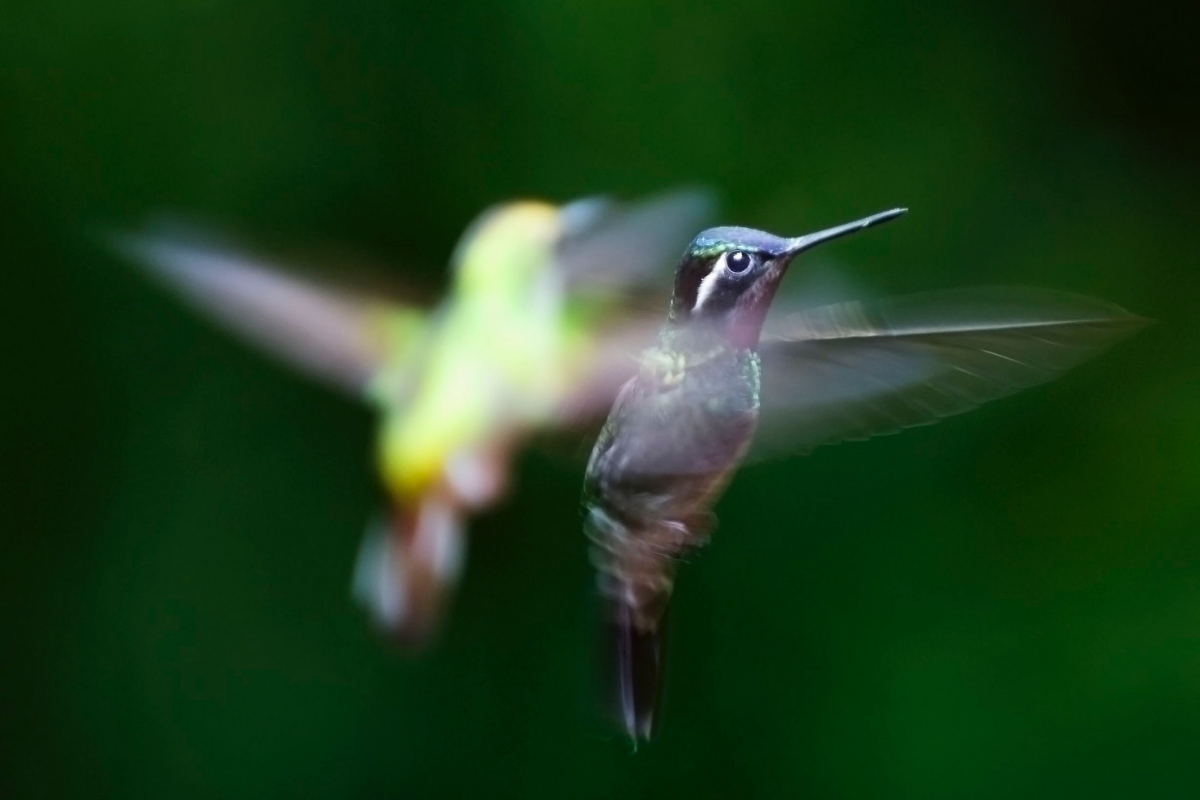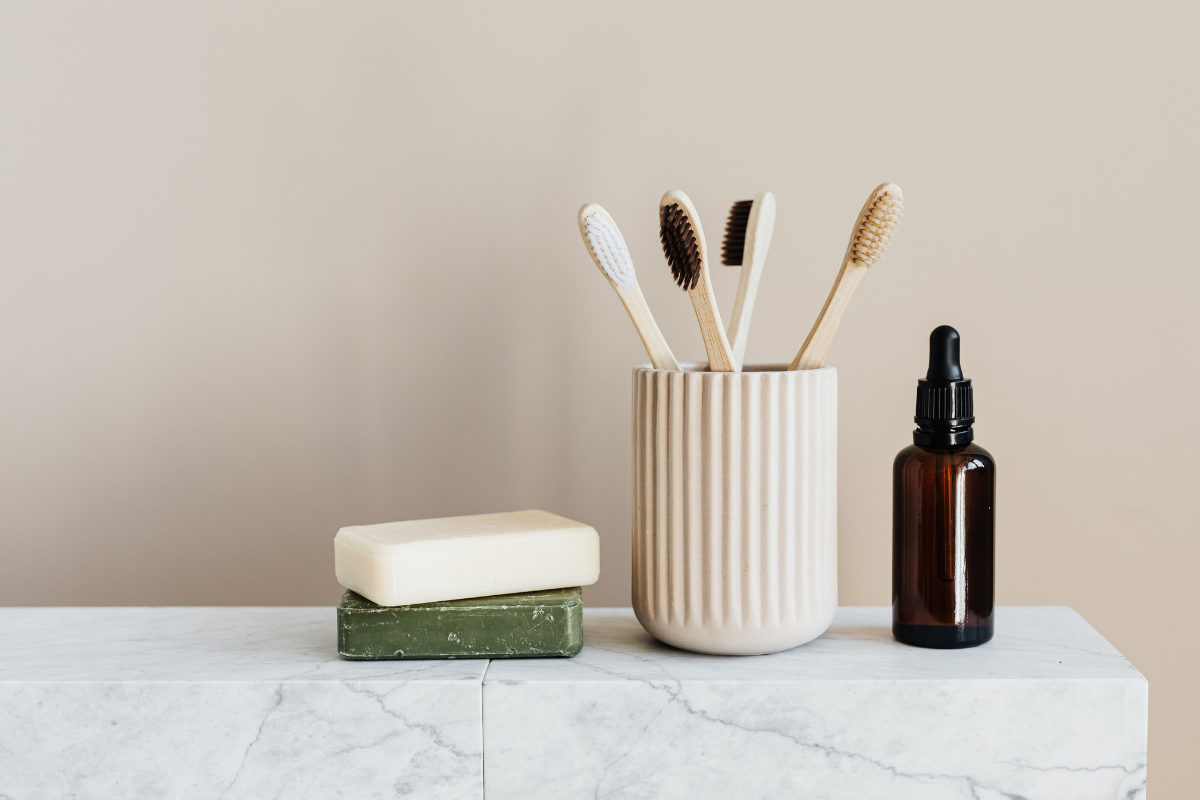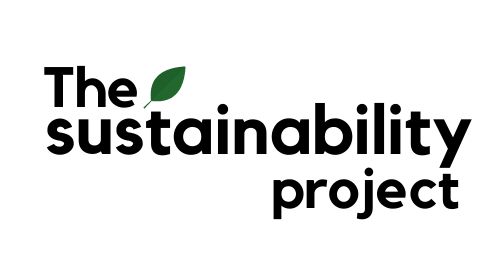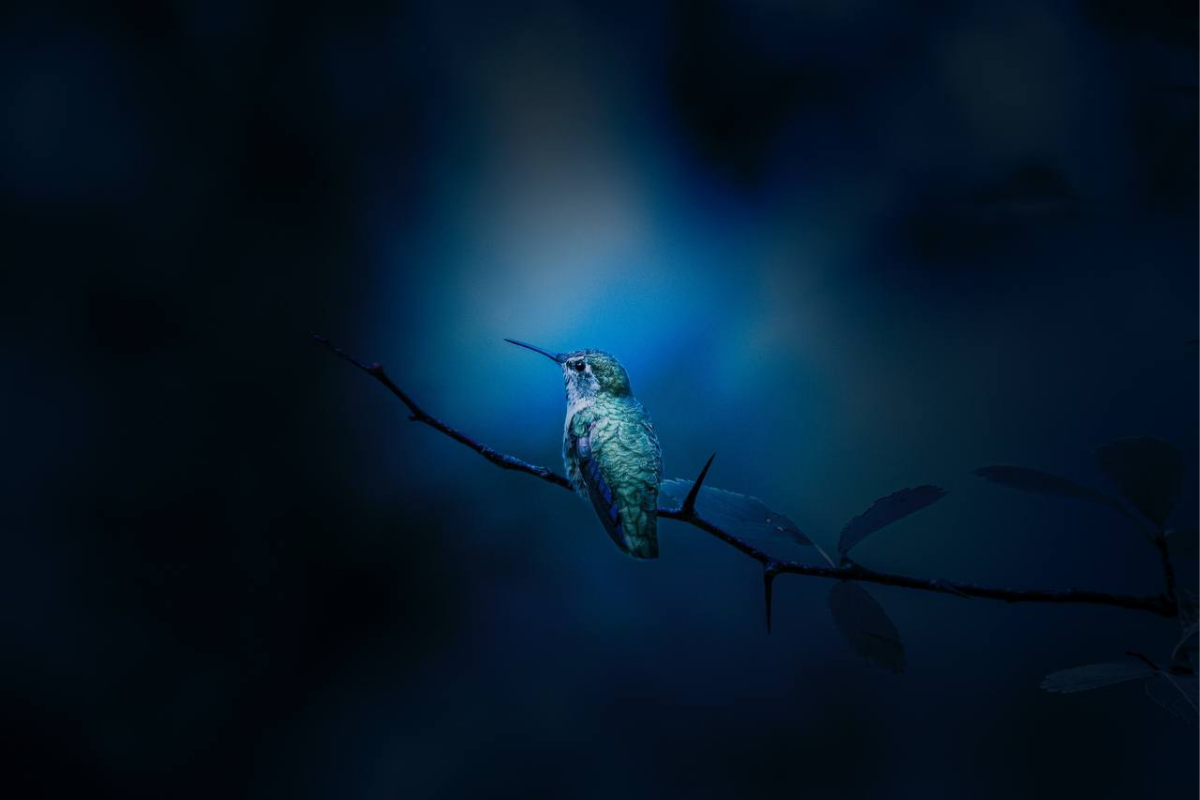I embarked on my sustainability journey a couple of years ago, and I got to admit that it hasn’t always been easy.
I was always struggling with this nagging guilt that I was not doing enough or that my efforts were too insignificant.
I still can’t convince my family/friends to be sustainable (a friend told me matter-of-factly that he’s been reversing my green efforts), I haven’t gone vegan, I don’t have sustainable clothing, etc.
A flicker of guilt strikes me when I let ethical habits slip, which I did a couple of times during the pandemic, and it can really be overwhelming when all of the guilt piles up.
At times like this, the hummingbird parable feels like a warm and comforting hug.
If you’re feeling small and insignificant or simply uninspired, read on for a short story of the hummingbird!
What is the story of the hummingbird about?
Here’s the story of the hummingbird, as told by Professor Wangari Maathai, a Kenyan environmental and political activist, Nobel Laureate and writer:
We are constantly being bombarded by problems that we face and sometimes we can get completely overwhelmed.
The story of the hummingbird is about this huge forest being consumed by a fire. All the animals in the forest come out and they are transfixed as they watch the forest burning and they feel very overwhelmed, very powerless, except this little hummingbird.
It says, ‘I’m going to do something about the fire!’
So it flies to the nearest stream and takes a drop of water. It puts it on the fire, and goes up and down, up and down, up and down, as fast as it can. In the meantime all the other animals, much bigger animals—like the elephant with a big trunk that could bring much more water—they are standing there helpless.
And they are saying to the hummingbird, ‘What do you think you can do? You are too little. This fire is too big. Your wings are too little and your beak is so small that you can only bring a small drop of water at a time.’
But as they continue to discourage it, it turns to them without wasting any time and it tells them ‘I am doing the best I can.’
Read more: Convincing the unconvinced to take steps for the earth
What is the key message of the hummingbird parable?

The parable has a simple message, as Maathai sums it up perfectly: “We should always be like a hummingbird. I may feel insignificant, but I certainly don’t want to be like the animals watching the planet goes down the drain. I will be a hummingbird. I will do the best I can.”
One misconception most people have about sustainable living is that one must make great changes in their life.
A sustainable lifestyle doesn’t mean you have to fill your wardrobe with only sustainable clothing (p.s. buying sustainable doesn’t mean being sustainable) or adopt an all-vegan diet.
The story challenges the idea that greatness is a prerequisite to success and highlights the hummingbird’s commitment and belief in the power of small. The hummingbird might have felt insignificant with the other animals discouraging it. Still, it was determined to protect its home with each bead of water it carried in its tiny beak.
If we all become like the hummingbird and start making minute sustainable changes to our lifestyle, perhaps our collective effort could change the course of our planet.
Like Anne-Marie Bonneau says, “We don’t need a handful of people doing zero waste perfectly. We need millions of people doing it imperfectly.”
Read more: Looking for ways to live more sustainably? Here are 101 tips.
How can we be like the hummingbird?

It’s normal to feel discouraged or overwhelmed somewhere in your sustainability journey. It could feel as though you’re swimming upstream, and sometimes it can be really tiring to just keep swimming. But, don’t give up and don’t belittle what you can achieve as an individual!
Besides, there are varying definitions of what a sustainable lifestyle looks like.
A sustainable lifestyle for a family of six could be having an electric car. It could be going car-free or meatless on Mondays instead for someone else or a different family. The hummingbird didn’t compare itself to the bigger animals. So why would you compare yourself to someone else with a different lifestyle?
To do your best like a hummingbird, you have to first know yourself. What lifestyle habits that will fit you and the lengths you’re willing or able to go? Once you’ve got that settled, you’ll be able to create realistic, sustainable habits that will stick with you for a long time. And perhaps you can take greater steps for the planet in the near future.

